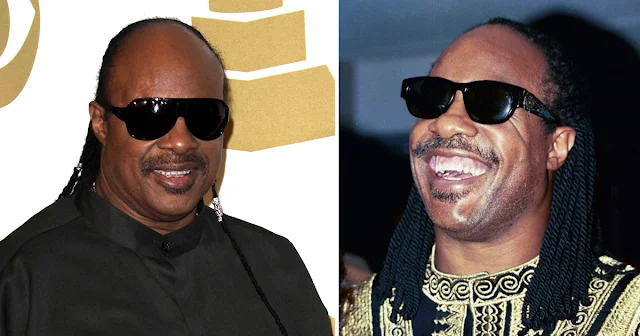One of the greatest artists of the 1970s and beyond is Stevie Wonder.
However, he was a musical prodigy in his early years before his popularity
really took off at that time. When he was 11 years old, Ronnie White of The
Miracles heard some of his early songs. Ronnie loved what he heard and led
him to a nearby recording studio, where he was offered his first record
deal. With "Fingertips," his debut number-one song, Wonder broke the record
for the youngest artist to ever reach the top of the Billboard Hot 100
charts at the age of 13.
Wonder's award-winning career was launched on the strength of this strong
beginning in his formative years. He shared the illustrious Frank Sinatra
with the Grammy Award for Album of the Year three times in a row when he was
just 27 years old. Then, in his 30s, he received an Oscar for "The Woman in
Red," a 1985 romantic comedy movie, for Best Original Song. Wonder became
the first Motown artist and the second African American musician in history
to win the award as a result. What a high point in a career, eh?
Wonder is a living example of how one can do great things despite having a
disability thanks to his many remarkable accomplishments throughout the
course of his lengthy career. He has a well-deserved star on the Hollywood
Walk of Fame in addition to being inducted into the Rock and Roll Hall of
Fame and the Rhythm and Blues Hall of Fame.
Wonder's blindness is certainly well known, but not everyone is aware of
how he lost his sight. Wonder explained that his inability to see is due to
being born too soon and having too much oxygen in a 2004 interview with
Oprah Winfrey. Even though he lost his sight, things might have been far
worse.
Stevie Wonder, who was born Steveland Hardaway Judkins in Saginaw,
Michigan, on May 13, 1950, would go on to become a hugely skilled musician
and entertainer, but his early years were plagued by health issues. Wonder
was given oxygen and placed in an incubator at the hospital after being born
six weeks early. Retinopathy of prematurity, which leads in the eyes not
growing, causes the retinas to detach, and finally resulting in blindness,
was caused by the combination of being born so early and receiving too much
oxygen.
In a private conversation with Oprah Winfrey in 2004, Wonder discussed this
encounter. You weren't placed in an incubator and given too much oxygen,
Winfrey questioned. Answer from Wonder
"Yes, I was too quick. My doctor gave me too much oxygen since he didn't
know what is now known about the ideal quantity, which caused damage to part
of my eyes."
Even though it was awful, things might have been worse. Added he,
"In fact, a girl who was born a minute before me passed away. That much
oxygen was too much for her."
When Winfrey asked Wonder if he ever felt resentful over the doctor's
error, Wonder responded:
"No. When I first visited the hospital where I was born in Saginaw,
Michigan, there was a large celebration and they handed me a special honor.
People could have been afraid that I would sue that doctor's ass. He didn't
mean to hurt me though."
It's very great how sensitive and aware of the issue Wonder is. He would
have every right to be angry and resentful about the doctor's carelessness,
but he's decided to look at the bright side of life, and that's undoubtedly
helped him advance.
Wonder discussed his childhood and its conditions in the same conversation
with Winfrey. When asked if he would change becoming blind, he replied that
he wouldn't "I have no regrets about what transpired since it shaped who I
am. However, I'd want to see."
He also grew to have a very strong relationship with his mother, Lula Mae
Hardaway. When he was five years old, did he tell his mother, "Don't worry
about me being blind, because I'm happy?" Winfrey inquired. It was
"something like that," Wonder acknowledged, stating:
"The fact that my mother was constantly sobbing upset me. She believed that
God may be punishing her. She lived at a period when conditions for women in
her situation were exceptionally challenging."
He recalls saying in the past that he would want to pass away with his
mother since he loved her so much if anything happened to her. But he came
to the realization that his goal in life is to "carry forth the essence of
what she has shown (him): love and goodness." He explains that the most
important things mother taught him were:
"to keep going. never to feel embarrassed. to keep my past from burying
me."
Because of his surroundings, he became "more interested," and undoubtedly,
the lessons his mother taught him helped him develop a strong sense of
self-worth and laid the groundwork for his success in life as a whole. Now
that Wonder is spreading his mother's message of generosity and kindness, he
is an inspiration to people all over the world.
Tags:
celebrity


